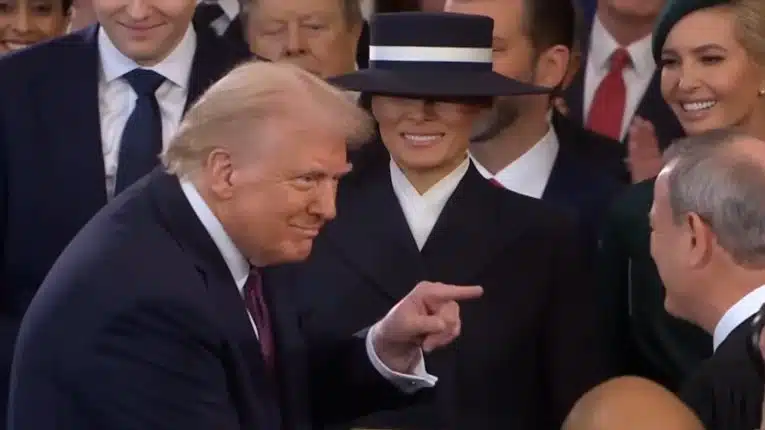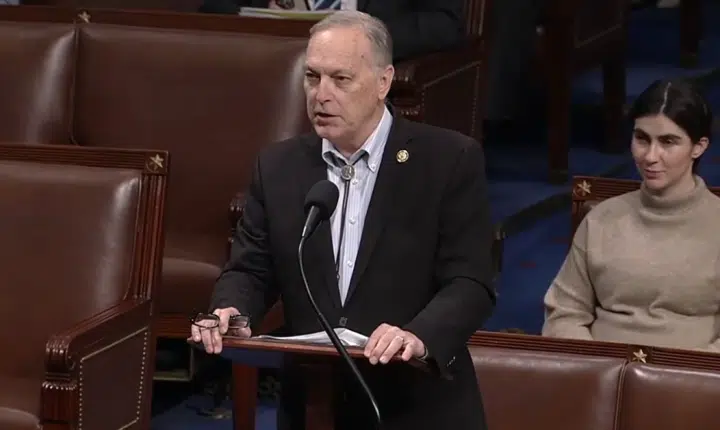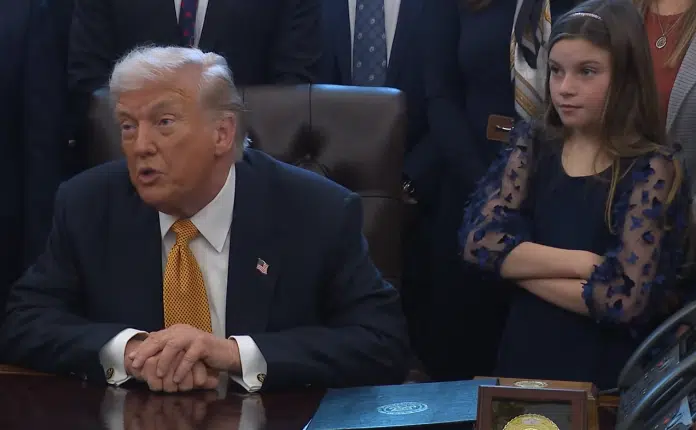
Republican members of the House of Representatives are beginning to drop Articles of Impeachment against President Joe Biden as the U.S. Justice Department has moves forward with indicting and prosecuting former President Donald Trump, the frontrunner for the 2024 Republican presidential nomination, for documents Trump says he declassified before he left office.
U.S. Rep. Andy Ogles (R-Tenn.) offered his Articles of Impeachment over an alleged bribery and pay-for-play scheme by President Biden from his tenure as Vice President from 2009 to 2017, wherein Biden allegedly took $5 million to have a Ukrainian prosecutor fired, and for failing to secure the southern border.
Ogles joins U.S. Rep. Majorie Taylor Greene (R-Ga.) who offered her own Articles of Impeachment in May, similarly for failing to secure the southern border.
So far, none of the Articles of Impeachment include an allegation that Biden, or Attorney General Merrick Garland for that matter, have abused their offices to prosecute Biden’s likely opponent in the upcoming 2024 election, Trump.
And yet that was exactly what House Democrats impeached former President Donald Trump for in 2019, in the First Article for allegedly “soliciting the Government of Ukraine to publicly announce investigations that would benefit his reelection, harm the election prospects of a political opponent, and influence the 2020 United States Presidential election to his advantage… President Trump—acting both directly and through his agents within and outside the United States Government—corruptly solicited the Government of Ukraine to publicly announce investigations into… a political opponent, former Vice President Joseph R. Biden, Jr…”
Trump was ultimately found not guilty by the U.S. Senate on both Articles that were offered. Perhaps that was because, simply, Senate Republicans opposed the impeachment and Senate Democrats supported it on partisan political grounds.
Or perhaps it was because when one examined the transcript between former President Trump and Ukrainian President Volodymyr Zelensky on July 25, 2019, all Trump said was “The other thing, there’s a lot of talk about Biden’s son, that Biden stopped the prosecution and a lot of people want to find out about that so whatever you can do with the Attorney General would be great. Biden went around bragging that he stopped the prosecution so if you can look into it … It sounds horrible to me.”
A major difference there, of course, was that there was no indictment of Biden by Trump’s Justice Department for taking bribes or anything else. There was, however, a June 30, 2020 FD-1023 alleging the bribe that was generated based on information generated in 2017. According to the House Oversight Committee’s Twitter account, “The FD-1023 was generated by the FBI on 6/30/20 based on another FBI record from 2017.”
The conduct related to Biden allegedly occurred between 2015 and 2016, related Biden’s son, Hunter, who was hired by Ukrainian natural gas company Burisma founder Mykola Zlochevsky in April 2014. Zlochevksy was a Viktor Yanukovych administration official who that year had $23 million worth of assets frozen in a corruption investigation and fled the country that year. Hunter Biden continued on the board at the company.
Ukraine’s prosecutor general, Viktor Shokin was fired in 2016 when Biden threatened then-Ukrainian President Petro Poroshenko with $1.2 billion of loan guarantees if the firing was not completed, with Biden bragging to the Council on Foreign Relations in 2018 that Shokin was fired the same day. Shokin said he was investigating a natural gas firm, Burisma Holdings, who Biden’s son, Hunter, served on the board of directors of and that that’s why he was fired.
In other words, Trump was impeached for merely Zelensky asking about the very matter Republicans now seek to impeach Biden over to do with the Biden family’s business dealings in Ukraine and the firing of the Ukrainian prosecutor. And just as the story resurfaced in 2023, increasing the likelihood of Congressional action against Biden including impeachment, Biden’s Justice Department handed out a fresh indictment of Trump.
Such is our political system today. If you look at potential overseas corruption by a political opponent as President, you’ll get impeached. And if you do so as Congress, the high stakes sacrifice is that former President, who happens to be the 2024 GOP frontrunner, will then be indicted on unrelated charges.
It’s a form of hostage taking.
A similar pattern played out in 2016 when Hillary Clinton was under FBI investigation over her keeping classified emails on a private server because she was lazy and wanted to receive national security information on her smart phone. With the FBI investigation hanging over Clinton’s presidential campaign like a Sword of Damacles, the Democratic National Committee and the Clinton campaign drummed up the bullshit Russiagate allegations against Trump, falsely alleging that the Trump campaign had conspired with Russia to hack the DNC and put their emails onto Wikileaks.
Basically, it’s “If I get an investigation, you get an investigation.” In the meantime, all of these investigations are highly divisive among the American people, where in public opinion polls, partisan Democrats will support the investigations and prosecutions of Trump, but oppose those directed at Clinton or Biden, and vice versa, where partisan Republicans support the investigations of Clinton and Biden, but oppose those against Trump. Independents appear to split on the matter depending on the circumstances.
Certainly, presidents have the explicit power under Article II of the U.S. Constitution to execute the laws, and that extends to the U.S. Justice Department, to bring prosecutions for alleged violations of federal law.
The danger to a republic is that invariably, the political parties will abuse these powers to go after their political opponents. Then, the arbiters of who gets to serve in public office is no longer the American people, but prosecutors, who remove dangerous opponents from the board like a game of chess, depending on who is in power.
In a June 12 tweet, House Speaker Kevin McCarthy (R-Calif.) articulated the current dilemma facing the nation, stating, “We have a sitting president who possessed classified documents dating back decades to his time as Vice President and as a Senator. Yet he is now weaponizing the federal government to go after his leading political opponent. Where is the equal justice under the law?”
It’s a good question. When one party is in office, the law appears to only apply to the opposition party. It is childish, also human nature and, yes, incredibly dangerous to the future of the Constitution.
The essence is in the state of nature, parties might never agree to a social contract exiting the state of nature if there was not an assurance that standing for election in opposition to an incumbent president would not be grounds for imprisonment.
This is the classic problem of republics but also other forms of government, what James Madison called the “mischiefs of faction” in the Federalist No. 10, warning of “the violence of faction,” adding, “The friend of popular governments never finds himself so much alarmed for their character and fate, as when he contemplates their propensity to this dangerous vice.” Madison also hypothesized that the U.S. Constitution could prevent such recurring, reciprocal political strife and civil wars that were well documented to have brought down republican forms of government in antiquity. It turned out not to be true, as less than a century later in 1860 the Civil War began.
Meaning, even under the U.S. Constitution, with due process and other protections of the accused explicitly written in, the wider body politic is always at risk of tearing itself asunder, with factions imprisoning one another being an obvious, predictable cause.
When it comes to prosecuting political opponents, the problem isn’t that we aren’t doing that enough. It might be that we’re doing it too much. And doing it more might appear to ensure an equal implementation of those prosecutions, but as has already been seen, it does not appear to act as a deterrent as intended. Instead, it appears to lead to further escalations.
No matter how just partisans might claim all these prosecutions and investigations are, this is not equal justice under the law, it is mutually assured destruction.
Robert Romano is the Vice President of Public Policy at Americans for Limited Government Foundation.






